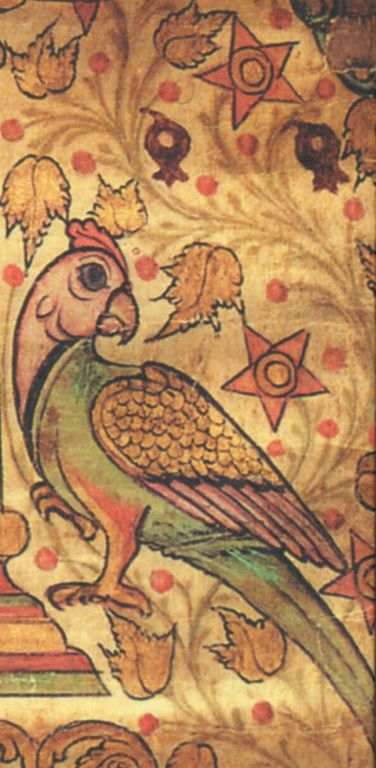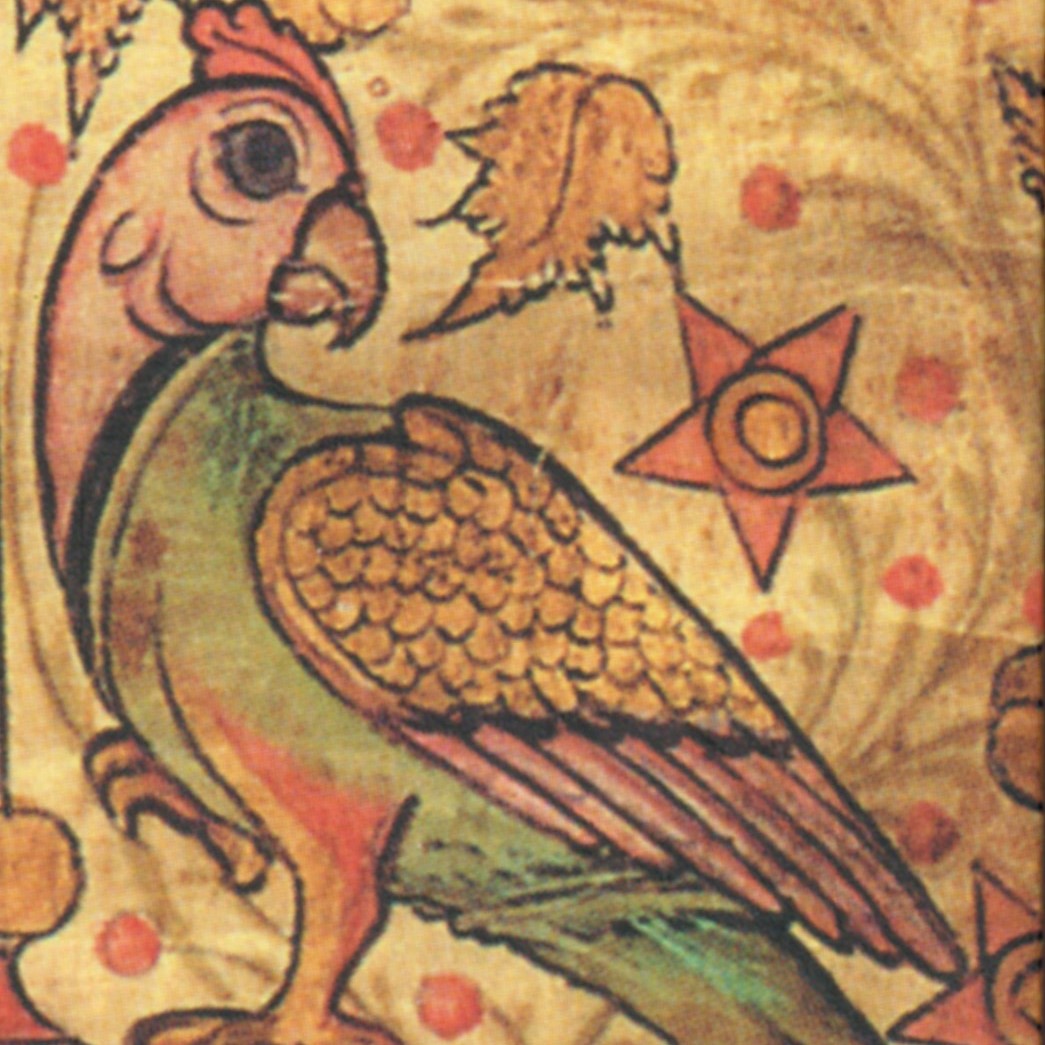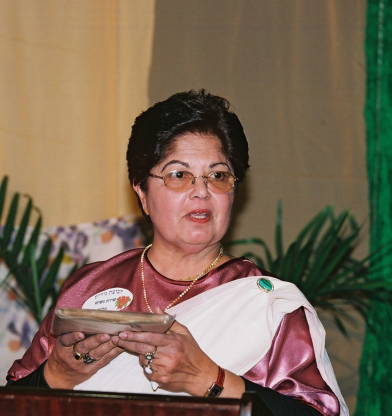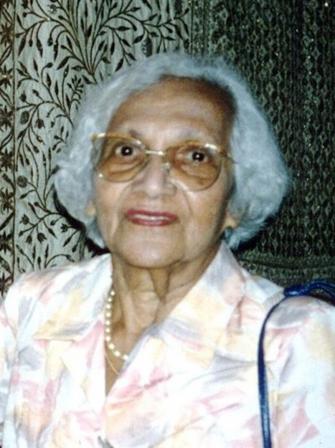2023
50. Little Sinai Mountain
Sung and recorded by Venus Lane, Tiberias, January 14, 2023; III-26
Tamburān muyiṃbu tŏņěyāyirikkeņaṃ
Tandě tŏņěyālě kiṭṭiya toṟāyuṃ
1. O Holy Tamburan, be for us the first help.
Torah we received from You, received her with Your help.
To us she brought good fortune, to the children of Israel,
The children who belong to You, to You the only One.
In clearest joy we walk along, saying as we go:
“Beneath the Torah’s glory is the only way we’ll go!”
When the famous Sinai bush was burning, burning bright,
It was only with Your help its leaves were not burned.2. When he saw the burning bush, Moshe stood in fear,
Stood until he heard the words: “Do not be afraid!”
Then Moshe Rabbenu bowed down praising God.
Moshe bowed down saying: “There is no one like You!”
The command was given, given to Moshe:
“When you depart from here and leave this holy place,
Then you must go forth from here and construct a house.
For the worship of Tamburan, you must build a house.”3. Then when Eternal God appeared in majesty—
In all His royal splendor, in majesty He came—
All the earth and all the sky were a-tremble then,
With lightning and with thunder and blasts of the shofar;
With music ringing out, ringing with the sounds
Of violins and trumpets, vīṇa and āraga.
Oh, how great Your glory! All were gathered there—
Twenty-two thousand angels and the servants of God.4. The mountains and the hills came jumping like deer.
The bigger ones were mocking the little crooked hills:
“O bent-over mountains, why are you jumping so?”
The little hills answered, and this is what they said:
“We want His royal procession upon us to descend!”
But small “Hunchback” Sinai stood silent and shy.
When God beheld the greatness of humble small Sinai
God raised up Sinai, above all the rest.5. This is the famous mountain, the famous Mount Sinai,
Blessed by the righteousness of the Fathers three.
Beholding its greatness, the greatness of Sinai,
All the noble children and Moshe Rabban
Gathered there together, proclaiming on Sinai:
“Now we are ready to hear what God commands.”
But when they heard the voice of God, they fainted dead away!
And there were none remaining to wake them up again.6. Then the divine Torah responded with this plea:
“O God most Pure and Holy, I cannot help but ask:
Is this the proper way that You should behave?
Behold Your holy children, unconscious as if dead!
They came to receive me—Your daughter to receive,
To rejoice in the marriage of the daughter of the King.
They came to my wedding; they came to celebrate.
And here lies my bridegroom: Moshe Rabban!”7. On the word of Torah, God responded then—
Responded for the sake of the children of Israel.
The dew of redemption He showered over them,
So all who were unconscious came to life again.
Arising, they sprang up, jumping up with joy.
Rejoicing they sprang up, with praises to God.
With singing and with dancing, they celebrated now,
And there with them also was Moshe Rabban.8. Moshe Rabbenu received the command:
“I give the shining Torah into your hands.”
With joy they accepted her; the Torah they received.
And the first-born children by Torah were redeemed.
So we must sing Your praises, sing out the praise of God,
Exalting You with praises to the highest degree.
Oh, gather us together—Your beloved children—
And in Yerushalayim grant that we may be.
This song about the giving of the Torah combines several narratives from midrash with unique and charming Kerala flourishes. The dramatic scene is set in stanza 3 with the royal appearance of the everlasting God to the accompaniment of shaking earth, thunder, lightning, shofar blasts, and the sounding of musical instruments. Three of the instruments are violins, long trumpets, and the large seven-stringed vīṇa (which is central to South Indian classical music), but the fourth (āraga or ārava) has not been identified.[1]
Another element in this scene is the appearance of 22,000 angels and all the heavenly servants of God (See Ginzberg 1968, 3:94, 4:38n207). The midrashic story portrayed in stanza 4 is a narrative that Ginzberg calls “The Contest of the Mountains” (3:82–85). In explaining how Mount Sinai was chosen as the site of the revelation, this Kerala song creates a verbal anthropomorphic image of Mount Sinai’s shy, humble personality and character as well as its physical appearance, using the Malayalam epithet “hunchback.”
The remainder of the song is built on a tradition from midrash that the people of Israel were struck dead with terror on hearing the first word proclaimed by God at Sinai. In response, the Torah intervened on their behalf, and God restored them to life by sprinkling on them the dew that will ultimately be used to revive the dead—and then sent two angels to support each of the listeners so they would not fall dead again while the commandments were being given. (Ginzberg 1968, 3:95, 6:39n110). In contrast to this awe-inspiring story, the Malayalam song rather playfully personifies the Torah as a disappointed bride.[2] The singers and listeners might well imagine her dressed in the finery of a Kerala bride as she sweetly but firmly questions God—Who apparently has rendered unconscious all the wedding guests and even her bridegroom—by asking “Is this the way to behave?” After being showered by the dew of redemption, the wedding guests in the song do not need angelic help to leap up singing and dancing, both to celebrate the marriage of the Torah with Moshe Rabban and to accept the Torah with joy and songs of praise. The overlaid mental images of Torah and bride are enhanced by appreciation of Kerala’s elegantly adorned brides (songs 27, 28) and the elaborate silver and gold crowns and hanging chains that adorn the silver Torah cases (song 15).
According to Joseph Hai Isaac, a lawyer and prominent Jewish leader from Ernakulam, this song was customarily sung at parties to honor a young boy when he first read the haftarah in the synagogue at age six and again to celebrate his bar mitzvah at age thirteen.[3]
Though the Sinai Mountain song is found in notebooks from Parur, Chendamangalam, Ernakulam, and all three Kochi communities, there were no available recordings of a sung version until Venus Lane appropriately “tuned” it, singing it to the lively piyyut Kumu beRinah (’Areshet 1980, 178), which is also used for song 15 (Sefer Torah Dedication Song) and for the final section of the Malayalam “Blessing for the Bridegroom” (song 24, stanzas 4–6). This popular melody is also shared with the Hebrew song Kikhlot Yeyni (’Areshet 1980, 322).
___________________________
[1] This instrument, along with the violin and trumpets, is also mentioned in an alternative version of The Song of Sara-Umma (song 43), in which Isaac has a musical vision as he and Abraham are approaching the mountain where he will be offered as a sacrifice.
[2] There is one midrashic tradition that God was the bridegroom and Israel the bride on Sinai (Ginzberg 1968, 3:92) and another that Israel was the bridegroom and Torah the bride, with God and Moshe as the best men (Ginzberg 1968, 3:454 and 1968, 6:36n200), but I am not aware of one with Torah and Moshe as bride and groom.
[3] Attorney Joseph Hai noted this while indexing several of the song notebooks for Shirley Isenberg. The haftarah is a short biblical reading from the Prophets that follows the reading from the Torah on Shabbat and festivals. The bar mitzvah celebrates a boy’s reaching the age of thirteen, when he is counted in the “minyan” of ten adult males required in Orthodox Jewish communities for the recitation of certain prayers.







